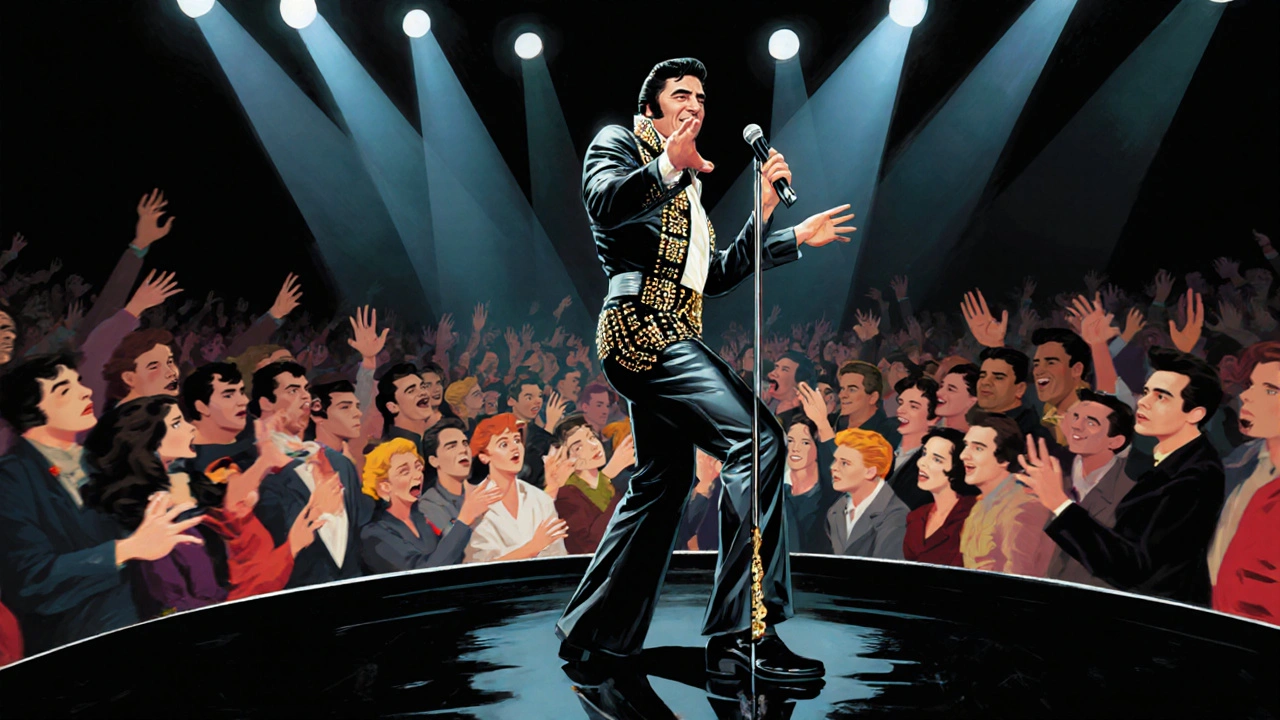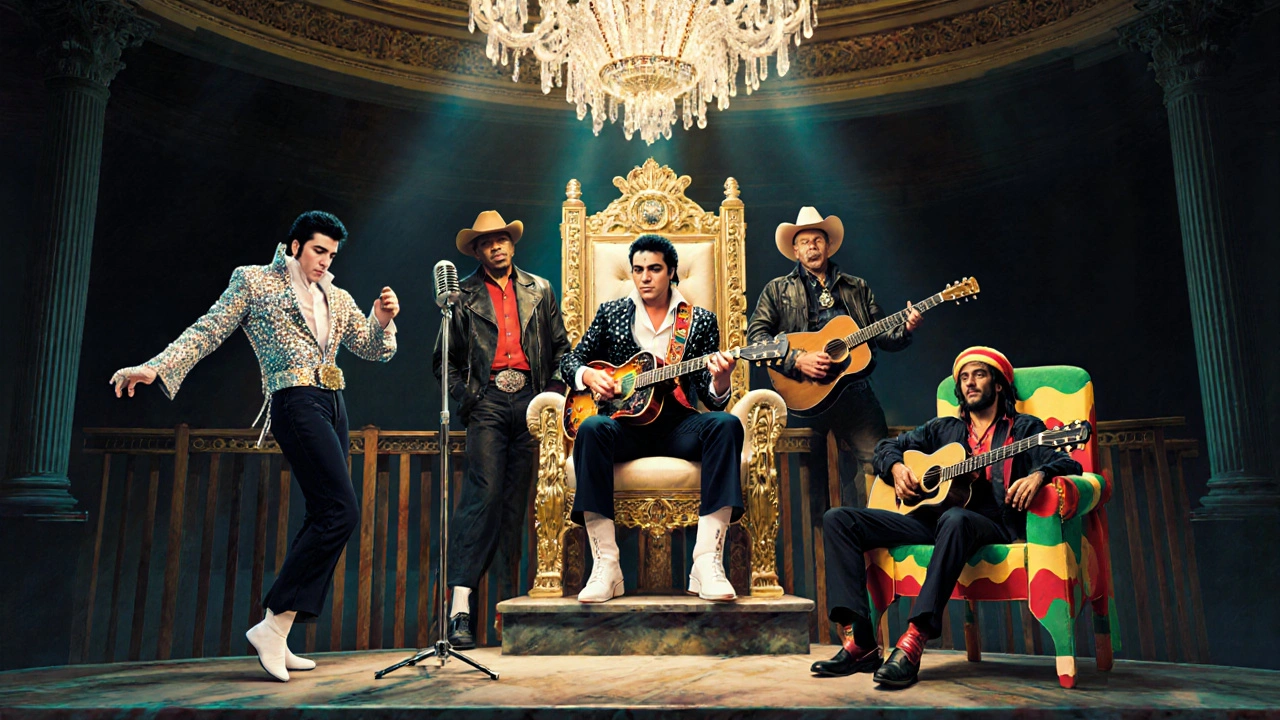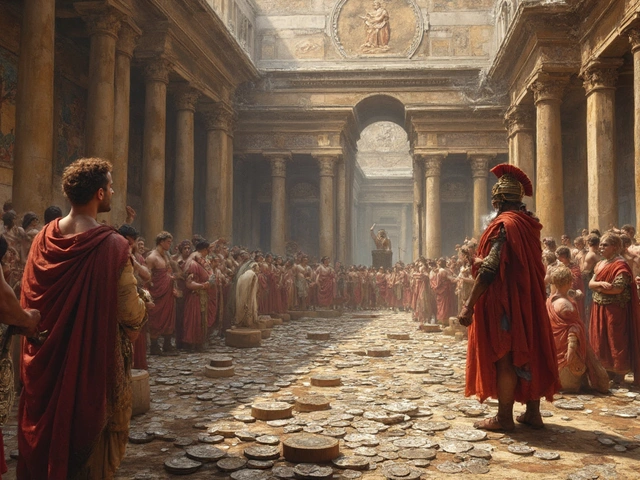Music Kings Quiz
Test your knowledge about the music legends known as 'Kings' of their respective genres
Quick Takeaways
- Elvis Presley earned the nickname the King for shaping rock‑and‑roll in the 1950s.
- His blend of country, blues, and gospel created a new sound that still dominates pop culture.
- Other singers also carry “King” titles - Michael Jackson (Pop), James Brown (Soul), George Strait (Country), and Bob Marley (Reggae).
- Key places like Graceland and Sun Records helped cement Elvis’s legend.
- Understanding why Elvis is called the King reveals how music, media, and marketing intersect.
When you hear the phrase “the King of music,” most people instantly think of Elvis Presley, a rock‑and‑roll pioneer whose impact still reverberates today. But why does a single singer command such a regal nickname, and are there other musicians who share similar crowns? This article answers those questions, walks through Elvis’s rise, and lines up the other “kings” you might hear about.
Who is the original “King” of popular music?
Elvis Presley earned the moniker “the King” early in his career because he blended white country twang with black blues and gospel into something fresh and electric. When he burst onto the scene in 1954 with Sun Records’ single “That's All Right,” the music press, fans, and even rival artists started referring to him as the “King of Rock and Roll.” The title stuck, and his fame exploded across television, movies, and a global tour circuit that set the template for modern pop stardom.
How Elvis built his kingdom
Elvis’s ascent wasn’t just talent; it was a perfect storm of timing, geography, and media savvy.
- Sun Records: The little label in Memphis captured his raw energy. Founder Sam Phillips wanted to record a “black sound” for a white audience, and Elvis’s voice fit the bill.
- Television exposure: Appearances on shows like “The Ed Sullivan Show” turned a regional favorite into a national obsession.
- Stage charisma: His hip‑shaking moves were both scandalous and magnetic, fueling gossip that spread far beyond the music charts.
- Film career: Movies such as “JailhouseRock” and “LoveMeTender” kept his image in front of movie‑going audiences.
- Graceland: The mansion in Memphis became a pilgrimage site, reinforcing the myth of the King’s home‑base.
These factors combined to create a brand that outlived his 1977 death. Even now, Graceland draws over half a million visitors a year, and his record sales exceed one billion units worldwide.

Other singers who wear a “King” title
While Elvis holds the undisputed “King of Rock and Roll” crown, the music world loves bestowing regal nicknames on other legends. Below is a quick rundown of the most famous ones.
- Michael Jackson - often called the “King of Pop” for his groundbreaking video artistry and record‑breaking album Thriller.
- James Brown - the “Godfather of Soul” and sometimes billed as the “King of Soul” because of his relentless rhythm and influence on funk.
- George Strait - the “King of Country” who has sold over 100 million records and won more CMA awards than anyone else.
- Bob Marley - hailed as the “King of Reggae” for popularizing the genre worldwide with hits like “One Love.”
Side‑by‑side comparison of music “kings”
| Title | Real Name | Genre | Signature Hit | Peak Era |
|---|---|---|---|---|
| King of Rock and Roll | Elvis Aaron Presley | Rock & Roll | "Heartbreak Hotel" | 1950s‑60s |
| King of Pop | Michael Joseph Jackson | Pop | "Billie Jean" | 1980s‑90s |
| King of Soul | James Joseph Brown | Soul/Funk | "Papa’s Got a Brand New Bag" | 1960s‑70s |
| King of Country | George Strait | Country | "Amarillo by Morning" | 1980s‑2000s |
| King of Reggae | Robert Nesta Marley | Reggae | "No Woman, No Cry" | 1970s‑80s |
Why the nickname matters
Nicknames like “the King” do more than sound cool-they shape public perception and influence industry economics. A regal label creates a narrative that advertisers, record labels, and even concert promoters latch onto. Elvis’s title helped him secure higher‑paying contracts, more media coverage, and a lasting brand that continues to generate merchandising revenue.
Similarly, Michael Jackson’s “King of Pop” moniker allowed his estate to market posthumous releases, tribute shows, and a line of memorabilia that earned billions after his death. The title becomes a trademark, turning an artist’s name into a cultural shorthand that fans instantly recognize.

Common myths about the “King” title
People often assume the nickname was handed out by a single authority, but it actually grew organically:
- It started with journalists. In 1956, Billboard ran a headline calling Elvis “the King of Rock and Roll.”
- Fans amplified the phrase through fan clubs, merchandise, and word‑of‑mouth.
- Record labels later embraced it in marketing copy, making it part of official branding.
So the crown is as much a product of public imagination as it is of the artist’s own achievements.
How to explore Elvis’s legacy today
If you want a hands‑on taste of why Elvis still reigns, try these simple activities:
- Stream his greatest‑hits on any music service and notice the blend of blues riffs and country twang.
- Watch a classic TV performance-like his 1956 Ed Sullivan appearance-to see the visual charisma that sparked controversy.
- Take a virtual tour of Graceland (many sites offer free 360° views).
- Read a biography that focuses on his early years in Memphis and how Sun Records shaped his sound.
Mini‑FAQ
Frequently Asked Questions
Why is Elvis Presley called “the King?”
The nickname emerged after his 1956 breakout hits and was cemented by press headlines. His pioneering blend of blues, country, and gospel, plus his massive cultural impact, made the title feel natural.
Are there other singers officially known as “the King”?
Yes, the music world uses similar regal nicknames: Michael Jackson (King of Pop), James Brown (King of Soul), George Strait (King of Country), and Bob Marley (King of Reggae), among others.
Did Elvis ever own the trademark for his nickname?
Elvis’s estate has trademarked many variations, including “The King” for merchandise, ensuring the brand stays under family control.
What were Elvis’s biggest awards?
He won three Grammy Awards (including a Lifetime Achievement Grammy) and received a posthumous Grammy Hall of Fame Award for multiple recordings.
How can I experience Elvis’s music without buying a CD?
All major streaming platforms carry his catalog. Look for curated playlists titled “Elvis Essentials” for a quick starter.
Next steps for music lovers
Now that you know why Elvis Presley is the OG “King,” you can deepen your appreciation in three ways:
- Explore the roots: Dive into early blues artists likeB.B.King and gospel singers who influenced Elvis’s style.
- Compare royalty: Listen to a track from each music “king” listed above and note genre‑specific vocal traits.
- Share the story: Talk about the nickname’s origin with friends or on social media-knowledge spreads, just like the original crown did.
Whether you’re a casual fan or a budding music historian, the story behind the title “the King” offers a window into how sound, culture, and branding intertwine to create legends that never truly die.





